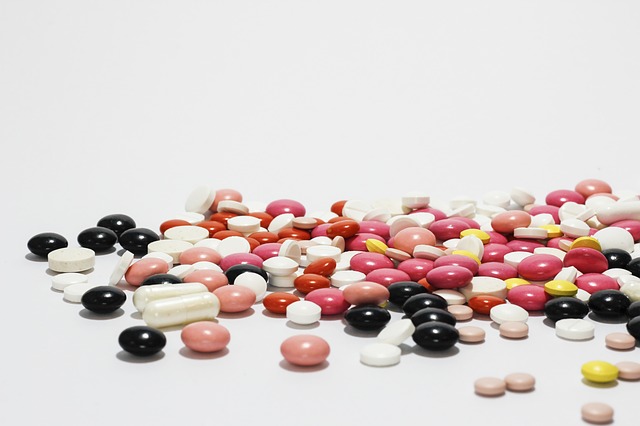Dear Reader,
In case you don’t have time to read my entire article, at least read the key points below. Please do so for all the women you know (and their partners, families, friends). This information is regarding a landmark Danish study, recently published in the medical journal JAMA Psychiatry, 2016.
“Key Points
Question Is use of hormonal contraception associated with treatment of depression?
Findings In a nation wide prospective cohort study of more than 1 million women living in Denmark, an increased risk for first use of an antidepressant and first diagnosis of depression was found among users of different types of hormonal contraception, with the highest rates among adolescents.
Meaning Health care professionals should be aware of this relatively hitherto unnoticed adverse effect of hormonal contraception” (1)
There you have it, in black and white. Users of hormonal contraception were compared with non-users. Users were more likely to be prescribed anti-depressants and diagnosed with depression.
Hormonal therapies in women are associated with depression. A few words stand out for me from the above key points.
Adolescents. How many women have doctors prescribed hormones, especially the combined oral contraceptive pill (COCP), in their teenage years? To fix those irregular periods, that acne? When we could instead, accept that the first 2-3 years of menstruation is often irregular as the brain and ovaries form a connection?
That the acne is usually a result of bad diet and that we should treat food as medicine?
The researchers found the risk of depression was highest in adolescents and decreased with age.
Unnoticed. If you don’t ask, you generally won’t know. Yet, maybe it’s doctors wanting to turn a blind eye. “What do you mean, it causes depression?
I’ve fixed her heavy periods and acne; she should just stay on it. The depression is probably caused by something else more complicated, like a bad relationship”
The researchers found that the risk of using anti-depressants and being diagnosed as depressed peaks at 2 -3 months of contraceptive use and then begins to fall.
Should we take more notice in the first few months of use? Should we be more vigilant about prescribing lifestyle –based treatment of depression during this time? (2)
Before we go any further, hormonal therapy such as the COCP when used perfectly, is excellent at preventing unwanted pregnancies. This article is not about contraception per se. I feel strongly that women should have the choice to use birth control.
I also feel strongly that women should be warned of the association between depression and hormonal therapy. I see so many depressed women in my practice.
After a few years in private practice, I noticed that many women would describe to me how much better they felt after coming off hormonal therapy, especially the COCP. Better in terms of better mood and more energy.
I was enlightened to see the results of this study out of Denmark. I felt that it backed up what I see daily, clinically, in my office. This study asked a simple question – is hormonal contraception associated with the treatment of depression?”
More than 1 million women (that’s a lot of cases!) aged between the ages of 15 – 34, with no prior history of depression were included in the study. The study found that compared to non-users, those who took the oral contraceptive pill were 23% more likely to use antidepressants.
It’s not just the oral contraceptive that was associated with depression.
Women on progestogen – only pills, were 34% more likely to need antidepressants; women with the levonorgestrel intrauterine system (IUD) were 40% more likely to be on antidepressants; those using the etonogestrel vaginal ring were 60% more likely to be anti-depressants.
Recently, gut health and the microbiome have dominated the medical landscape. There is mounting evidence on the link between the gut and brain health.
In 2015, the Australian Therapeutic Goods Association (TGA) evaluated published research that described a link between the use of combined oral contraceptives (COCs) and an increased risk of developing inflammatory bowel disease (IBD), including Ulcerative Colitis and Crohn’s disease. They also identified that hormone replacement therapy (HRT) was also a potential risk factor for IBD.
Perhaps a woman’s gut health while she is taking hormonal therapy impacts upon her risk of developing depression?
It is important to note that this study did not prove that contraceptives cause depression but are rather associated with it. The researchers recommended that women not stop their contraception, as further studies are needed.
My concern with this is that such studies take a long time to put together and for conclusions to be drawn.
It is important to look at the limitations of such a study design. This was a prospective cohort study. Such a study is able to provide possible associations (links) between the exposure (pill) and the outcome (depression).
It is not designed to prove that the pill CAUSES depression. Yet, I feel a positive association is enough to guide my recommendations.
In my practice, when I see a woman who is on the pill and is depressed, I discuss other options for contraception or menstrual issues, pelvic pain etc.
As long as she is informed of the association between depression and hormonal therapy, in the end, it is her choice what she chooses to do.
It’s important that women know this bit of information. I hope I have helped spread the word.
Be well,
You can find much more information on living a holistic lifestyle in these free magazines and on our YouTube channel.
 Dr Natasha Andreadis – Fertility Specialist, Gynecologist
Dr Natasha Andreadis – Fertility Specialist, Gynecologist
Dr Natasha Andreadis
Dr Andreadis is a Certified Fertility, Hormone Specialist and Gynaecologist from Sydney, Australia. She has a private practice and is Clinical Lecturer at Sydney University Medical School.
Natasha trained at RPAH, Sydney and completed her fellowship in Reproductive Medicine and Infertility (CREI) in the Netherlands and Oxford, UK.
She is expert at fertility treatments such as IVF, IUI and genetic testing of embryos and is a practitioner with Genea, World Leaders in Fertility.
Natasha is experienced in managing a wide range of fertility issues such as endometriosis, ovulation issues, miscarriage, unexplained infertility and PCOS.
She also performs hysteroscopic and laparoscopic surgical procedures.
She has completed further studies in genetics, nutrition and health coaching. She is an Expert on Sarah Wilson’s I Quit Sugar 8 week Program.
Natasha believes that food is medicine and enjoys lifestyle coaching women and couples who are trying to conceive.
Having completed a Masters of Reproductive Science and Genetics, she has a special interest in biotechnology and genomic medicine, incorporating this into her daily practice. She is a qualified Fitgenes practitioner and is continually learning about this exciting field of medicine.
Dr Andreadis enjoys the world of social media and digital content creation. She has a YouTube channel – DR Tash TV, where she highlights the importance of diet, lifestyle, nutrition and environment when trying for a baby.
Connect with Natasha via: www.drandreadis.com.au







Woah! I’m really loving the information in this article. Thanks. Outstanding Blog!
Great. So glad you are enjoying the articles here.
Excellent goods from you, man. I have understand your stuff previous to and you are just too fantastic. I really like what you have written here, certainly like what you are saying and the way in which you say it.
I can’t wait to read much more from you. This is really a tremendous web site.
Hi there, I enjoy reading all of your post. I wanted to write a little comment to support you.
Great. So glad you are enjoying the articles here.
I want to say fantastic blog! Thanks for your help.
Great. So glad you are enjoying the articles here.
Your style is really unique in comparison to other people I’ve read stuff from. I appreciate you posting this fantastic information. It really made me think.
Great. So glad you are enjoying the articles here.
An outstanding share! I have just forwarded this onto a co-worker who was doing a little homework on this.